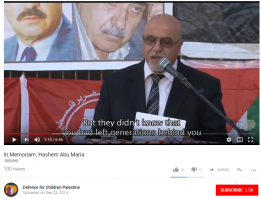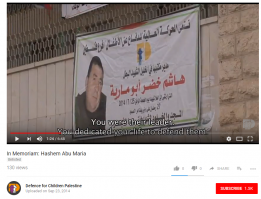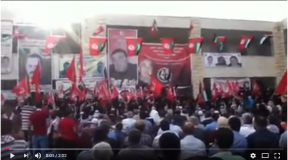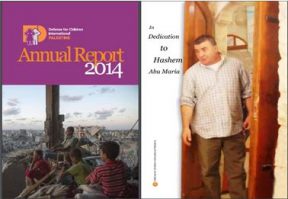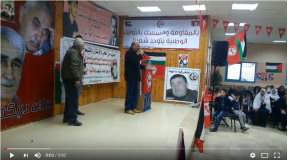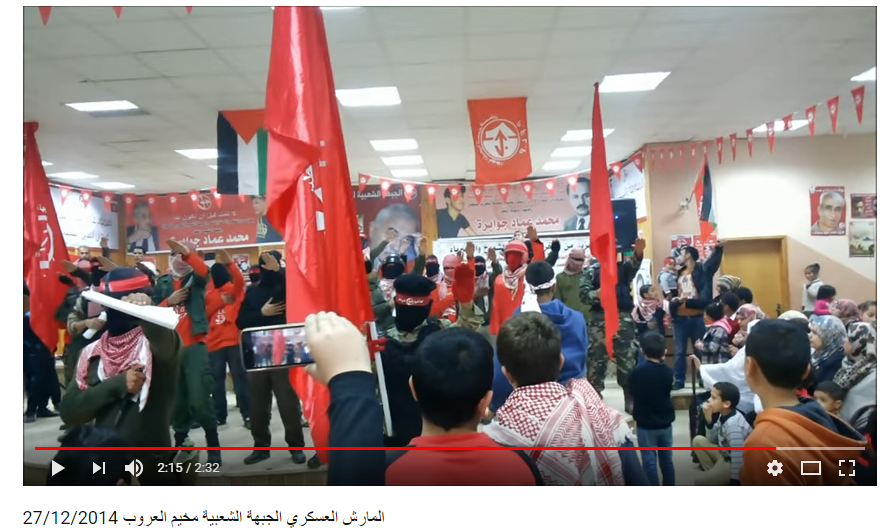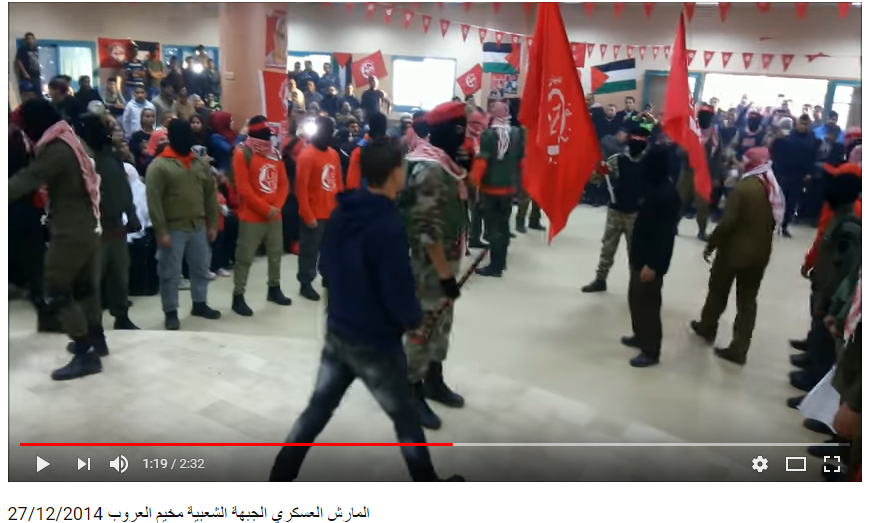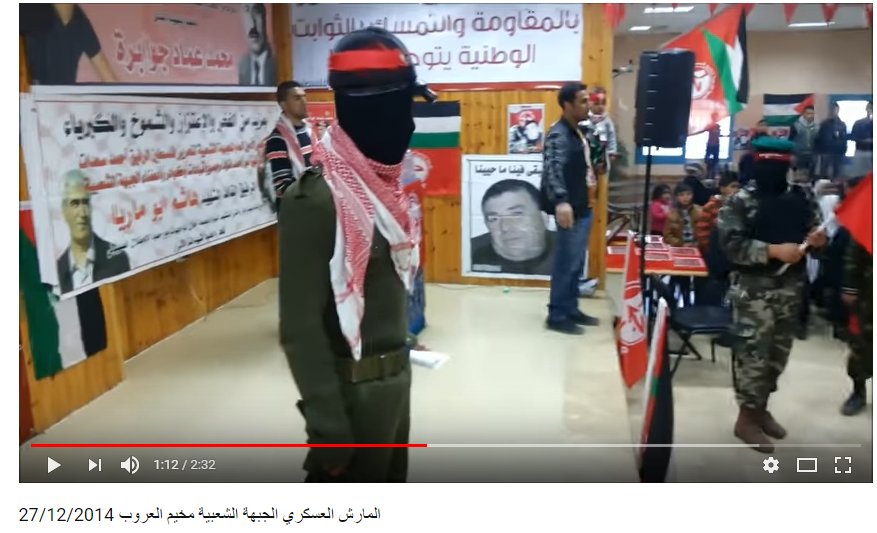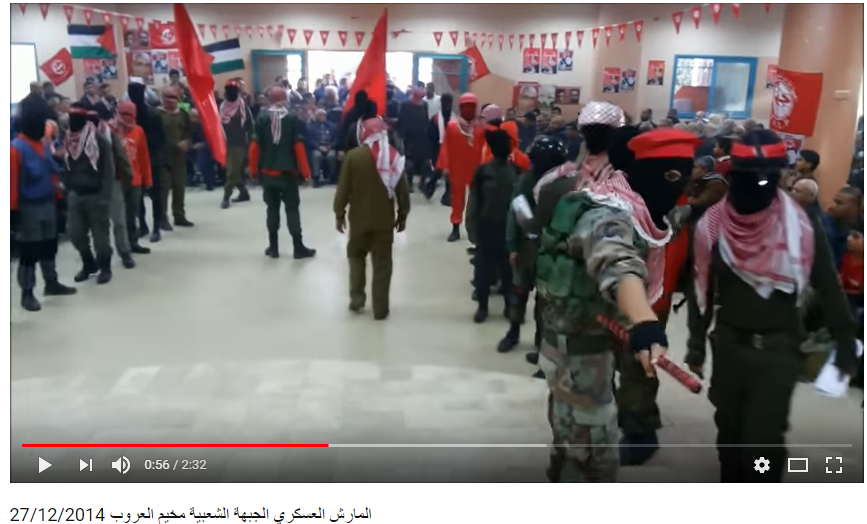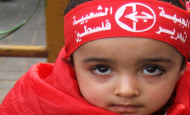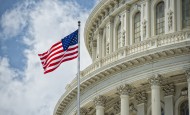Evaluation of the ‘‘Promoting Human Rights for Palestinian Children Living Under Israeli Military Occupation Act’’ (HR 2407)
On May 1, 2019, Rep. Betty McCollum (D-MN) introduced the ‘‘Promoting Human Rights for Palestinian Children Living Under Israeli Military Occupation Act’’ (HR 2407). This is a revised version of a very similar bill from 2017, which only garnered support from 30 members of Congress.
Key Points
- The bill is based largely on the lobbying efforts and accusations of Defense for Children International-Palestine (DCI-P). DCI-P is closely tied to the Popular Front for the Liberation of Palestine (PFLP), designated as a terrorist organization by the US, EU, Canada, and Israel.
- Citibank, Arab Bank and Global Giving have closed DCI-P accounts due to these PFLP connections.
- Many of the citations to UN and other reports in turn simply copy lines from DCI-P publications.
- The new legislation includes several inaccurate factual claims and distortions of international law.
- The bill applies standards to Israel that are not applied in the US in general, or in McCollum’s state of Minnesota in particular.
- The bill misquotes a number of State Department reports.
- Several of the claims are based on outdated publications and information. Positive reforms made by Israel and more favorable assessments of the Israeli military justice system made in more recent publications, such as the 2017 State Department human rights report, are ignored.
- The bill ignores the context of the involvement of Palestinian minors in terrorism and acts of violence against Israeli civilians. It similarly makes no mention of mitigating the threat of recruitment and use of Palestinian minors by terrorist organizations – itself a grave violation of international law.
- The bill demands, as a result of DCI-P’s self-serving lobbying, an astounding $19 million US taxpayer funding to be allocated to DCI-P and its NGO allies.
DCI-P’s Ties to the PFLP
NGO Monitor has identified at least 11 current and former DCI-P board members, officials, and employees linked to the PFLP –some of whom have been convicted of terror offences such as planning and carrying out attacks targeting Israeli civilians (see NGO Monitor’s report: “Defense for Children International – Palestine’s Ties to the PFLP Terrorist Organization”).
On the basis of these findings, financial institutions such as Citibank, Arab Bank, and Global Giving have acted to close DCI-P’s accounts. Additionally, the City University of New York (CUNY) has launched an investigation into a partnership between CUNY Law and the Palestinian group.
Ties between DCI-P and the PFLP include:
- Hashem Abu Maria – Former coordinator for DCI-P’s “community mobilization unit,” was killed in clashes with the Israeli military in July 2014. Following his death, he was hailed by the PFLP as a “leader” and a “martyr.” He served as a DCI-P official during the years it influenced UNICEF and other publications cited by McCollum. The terror organization held public commemorations in his honor and published an official death notice. (See Appendix I)
- At a September 2014 event mourning Abu Maria, DCI-P General Director Rifat Odeh Kassis addressed a crowd in a courtyard adorned with PFLP flags and posters; many of the participants wore PFLP paraphernalia.
- Riad Arrar –Arrar is Director of DCI-P’s Child Protection Program. He has spoken publicly at PFLP events, including at one commemorating PFLP members killed while throwing fire bombs. Many of the participants were clad in military garb, and several appeared to be children. (See Appendix II)
- Nasser Ibrahim- Nasser Ibrahim was the President of DCI-P’s General Assembly– one of the group’s governing bodies – until at least 2018 and previously served several terms on DCI-P’s board. Ibrahim is the former editor of the PFLP’s weekly publication, El Hadaf. Additionally, in 2014, the PFLP unveiled a mural “developed by writer and journalist Nassar Ibrahim,” honoring PFLP founder George Habash. Several PFLP members attended and spoke at the event.
US and Minnesota Juvenile Justice Practices
The bill condemns Israeli behavior and seeks to impose standards on the country that are often not applied in the US in general or specifically in Minnesota.
McCollum Claim:
- “The Government of Israel and its military detains around 500-700 Palestinian children between the ages of 12 and 17 each year.”
Minnesota Practice:
- According to the Israel Prison Service, at the end of 2018, 205 children, or .015 % of the total Palestinian child population in the West Bank, were imprisoned by Israel.1
- For every 100,000 Palestinian children in the West Bank, there is a rate of 16 children held in Israeli prisons.
- According to the US Department of Justice’s Office of Juvenile Justice and Delinquency Prevention (OJJDP), in 2015 – the most recent year published in the database – 149 per 100,000 total children were detained and/or sent to a correctional facility in Minnesota.
- According to the Minnesota Legislature’s Office of the Revisor of Statutes, children as young as 14 can be certified to stand trial as adults in Minnesota.
McCollum Claim:
- The proposed legislation, citing Human Rights Watch (HRW) and DCI-P, condemns Israel for not allowing the presence of parents during interrogation.
Minnesota Practice:
- There is no US federal law stating that a parent or guardian must be present when a juvenile is arrested.
- According to Minnesota state law, “It is not necessary to have the parents or guardians present when conducting a custodial interrogation.”
McCollum Claim:
- The bill misquotes a 2013 State Department report (discussed further below) to support the false claim that Israel places Palestinian minors in solitary confinement.
Minnesota Practice:
- According to a 2016 report by the Lowenstein Center for Public Interest, in Minnesota, solitary confinement for juveniles is legal for up to 5 days per offence.
- According to that analysis, the practice of solitary confinement for minors is legal in 21 states. In 7 states, there is no maximum time limit for the solitary confinement of juveniles, or solitary confinement sentences can be extended indefinitely with administrative approval.
McCollum Ignores Violence by Palestinian Minors
While noting an increase in the arrest of Palestinian minors in recent years, the bill ignores the context of a sharp rise in Palestinian terrorism beginning in 2015 and the increasing use of minors by terror groups to carry out these attacks.
As noted in NGO Monitor’s submission to the State Department’s 2018 human rights report:
- On May 14, 2018, Islamic Jihad announced the deaths of three of its members, killed in clashes with Israeli forces on the Gaza border, including a 17 year-old.
- On July 26, 2018, 17 year-old Tareq Yousef stabbed Yotam Ovadia to death and injured two additional Israeli civilians, in an attack on the West Bank community of Adam.
- On September 16, 2018, 17 year-old Khalil Jabarin stabbed US citizen Ari Fuld to death at a shopping center in the West Bank.
Similarly, NGO Monitor noted the involvement of nearly 15 Palestinian minors in stabbings, car rammings, fire bomb throwing, and engaging in violent clashes.2
Analysis of claims made in the bill
The bill makes several false or distorted claims and relies on several reports that were heavily influenced by DCI-P, if not copied outright from DCI-P publications.
- As previously analyzed by NGO Monitor, the 2013 UNICEF report – cited multiple times in the bill- was essentially written by DCI-P. Additionally, State Department, UN reports and NGO reports such as the 2018 B’Tselem publication referenced by McCollum, rely heavily on unverified or false claims made by DCI-P.
- Similarly, McCollum frequently relies on outdated reports, such as a 2015 UNICEF report and a 2013 State Department report, deliberately ignoring juvenile justice reforms made by Israel since 2013 and more recent US analyses that more positively assess Israeli military justice.
McCollum Claim:
- “In the Israeli-occupied West Bank, there are two separate legal systems, with Israeli military law imposed on Palestinians and Israeli civilian law applied to Israeli settlers.”
Fact:
Israel is required by international law to try Palestinians – including minors – in military courts. Use of Israeli civilian courts for Palestinians would require annexation of the West Bank.
McCollum Claim:
- According to UNICEF’s 2013 document, “in no other country are children systematically tried by juvenile military courts that, by definition, fall short of providing the necessary guarantees to ensure respect for their rights.”
Fact:
- Israeli military courts only have jurisdiction over a limited number of security and criminal offences carried out in Area C of the West Bank. Consequently, the military courts deal mainly with violent security offenses, including murder and attempted murder.
- According to the State Department’s “Israel and the Golan Heights 2017 Human Rights Report”: “The evidentiary rules governing military trials of noncitizen Palestinians, all of whom are subject to military law, are the same as evidentiary rules in criminal cases. According to the Ministry of Justice, the law does not permit convictions based solely on confessions. Counsel may assist the accused in such trials, and a judge may assign counsel to defendants. Indigent detainees do not automatically receive free legal counsel for military trials, but almost all detainees had counsel, even in minor cases. Court indictments were read in Hebrew and, unless the defendant waived this right, in Arabic. Authorities translated all military court indictments into Arabic. At least one interpreter was present for simultaneous interpretation in every military court hearing, unless the defendant waived that right. Various human rights organizations claimed the availability and quality of Arabic interpretation was insufficient; most interpreters were bilingual Israelis performing mandatory military service. Defendants may appeal through the Military Court of Appeals and then to the Supreme Court.” (emphases added)
The bill misquotes the 2013 and 2016 US State Department reports. McCollum writes that the US State Department claimed that Palestinian minors are forced to sign confessions in Hebrew. It also cites a 2016 UN Committee Against Torture (CAT) review of Israel that made similar allegations.
- The McCollum bill omits however that both the 2013 and 2016 State Department reports qualify this claim by stating “NGOs reported” these allegations – a clear reference to DCI-P. Failure to disclose the State Department was simply conveying NGO reports it received rather than verified facts represents either a clear failure of due diligence in preparing the bill or a deliberate manipulation of State Department analysis.
- The UN CAT statement is nearly the same as language that appears in DCI-P’s submission to the committee.
McCollum Claim:
- Misquotes the 2013 State Department report alleging that the State Department said that Israel places minors in solitary confinement. The bill also uncritically repeats DCI-P claims on this topic.
Fact:
- The 2013 State Department report explicitly notes the allegations relating to solitary confinement are claims made by DCI-P and other NGOs, and not verified by the State Department.
- Israel is required by international law to separate minors and adult prisoners. If a single minor is in custody s/he must be held separately from others prisoners in order to fulfil this legal obligation. In no way, does this practice represent solitary confinement.
McCollum Claim:
- Cites a 2013 UN Committee on the Rights of the Child review of Israel claiming that Palestinian children “continue to be systematically subject to degrading treatment and often to acts of torture.”
- This line is lifted nearly verbatim from DCI-P’s submission to the committee. None of the children, nor their lawyers, alleged to have been subject to such treatment by DCI-P, alerted authorities, filed complaints, or raised these issues during their court proceedings.
McCollum Claim:
- Quotes a 2018 B’Tselem report alleging that minors are denied the right to consult with a lawyer prior to interrogation. It similarly quotes DCI-P’s claim that “under Israeli military law, children do not have the right to a lawyer during interrogation.”
Fact:
- Since Israeli juvenile military courts in the West Bank were established in 2013, laws have been enforced that minors must be notified of their right to speak to a counsel prior to investigation, and all Palestinian minors have a right to an attorney.
- According to Lt. Col. Maurice Hirsch, former Chief IDF Prosecutor of the military courts, (10:00), “Immediately once someone is arrested, they have the right to consult with a lawyer, by law. It’s not a choice or a discretion that the interrogating officer has; it’s a requirement of the law. Israeli case law provides that breach of the right to consult with a lawyer, could in some circumstances result in the quashing of any confession then given by the person whose rights were breached.”
- He added, “Israel in general does not believe in having the presence of a lawyer in the interrogation room itself… If I was under arrest and being interrogated, I do not have a right to have my lawyer present with me in the interrogation room.”
Lobbying for Large Sums of Money…for the Lobbyists
The bill demands $19 million in taxpayer funds for NGOs to “monitor[] human rights abuses associated with Israel’s military detention of Palestinian children” and to provide psycho-social support for Palestinian minors.
- This is a self-serving attempt by DCI-P to lobby for US funding for itself and its NGO partners.
- DCI-Ps ties to the PFLP would likely make the group ineligible for US funding due to material support laws.
- In addition, in the first quarter of 2019, UNICEF appealed for merely $2.8 million for these same activities in the West Bank and Gaza. Much of this UNICEF funding goes to the same groups behind the McCollum legislation.
- UNICEF’s full budgetary request for all operations, including humanitarian projects, in these areas for 2019 was $21 million.
Appendix I: DCI-P Staffer Hashem Abu Maria’s PFLP Ties
PFLP death notice for Hashem Abu Maria: 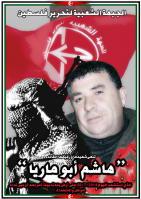
DCI-P General Director Rifat Odeh Kassis addressing Abu Maria’s memorial service in front of the PFLP flag and pictures of the group’s founder, George Habash (Uploaded by “Defence for Children Palestine,” September 23, 2014):
DCI-P poster featuring Hashem Abu Maria hung at his memorial service (Uploaded by “Defence for Children Palestine,” September 23, 2014):
DCI-P poster featuring Hashem Abu Maria hung at his memorial service (Screenshot from video uploaded by “Defence for Children Palestine,” September 23, 2014)
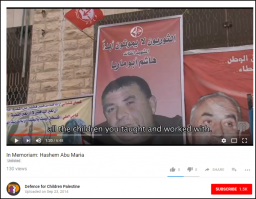
Screenshot of a PFLP memorial event, commemorating Hashem Abu Maria (Uploaded to YouTube by “عميد بريغيث”, December 4, 2014).
DCI-P 2014 Annual Report, dedicated to Hashem Abu Maria:
Appendix II: DCI-P’s Director of Child Protection Program Riyad Arar Speaks at PFLP Memorial Service
Riyad Arar addressing a memorial service for a PFLP member, surrounded by PFLP flags, posters of PFLP leaders George Habash and Ahmed Sa’adat, and posters of Hashem Abu Maria (Uploaded to YouTube by “حسونه طنينه”, December 27, 2014)
PFLP members marching during the memorial service (Uploaded to YouTube by “حسونه طنينه”, December 27, 2014):
Footnotes
- According to the Palestinian Central Bureau of Statistics (PCBS), in 2017 in the West Bank, there were 1.3 million Palestinian children under age 18 (43.4%) and 3 million total Palestinian residents.
- See NGO Monitor’s analysis of a 2017 report by the UN Secretary General on “children in armed conflict.”
